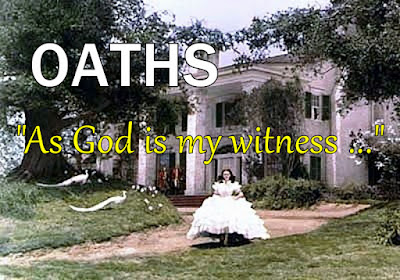HOLY COMMUNION
Acts 2:43-47
Thee.
Thou.
Thine.
These are pronouns that have long been out of fashion in our language. These days they're found in the King James Bible and in some of our hymns.
Thee, thou and thine were used instead of you and your when addressing someone with whom you had a deeply personal emotional or spiritual connection with, like a family member, a close friend, a loved one, and of course, God and Christ. For example, an angry driver might roll down his window and yell, "Why don't you learn how to drive, you jerk," but he would say to his beloved wife, "I love thee."
So, when we look for key words like common, community, commune and communion in understanding Holy Communion, think of them in the context of an intimate emotional and spiritual connection.
My husband often marvels at how we ever became a couple. We don't have a lot of common interests, but we do share many of the same values about life, marriage, and social justice. We see the same thing happening in the church -- different kinds of people connected, not necessarily by blood, but definitely by our faith and our values.
The early church was like that. If you remember the story of Pentecost, there were people from all over the Mediterranean and middle eastern area who came to belief in Jesus as the Son of God and their Savior. Acts 2:43-47 tells us that they formed a community based on their shared experiences of Christ and held all things in common. While it says that they shared their personal possessions and their time with each other, the most important thing they had in common was their relationship with one another in Christ. That made them a faith community.
In the beginning, God shared His love with the community of His creation, humans and living things as well as the earth and heavens. Humans were created in the image of God, to reflect God's love in community with one another and the world. When we turned away from God and broke away from Him, he continued to love us and call us back into a deeply personal emotional and spiritual relationship with God that formed the foundation of the community of love He created.
Through the life and ministry of Christ, Jesus showed us by example the meaning of communion and community. Luke 5:16 tells us that it was his custom to go away by himself to spend time communing with God. He also formed a small community of disciples who would carry on his ministry and spread the gospel and bring healing to hurting and bruised lives through God's love.
By his death and resurrection, he opened the way to reconcile with God and enter back into a intimate spiritual and emotional relationship with our creator rather than enslaving ourselves to sin and death -- this is the holiest of all communions.
Through the sacrament of Holy Communion, we celebrate what we hold common with all Christians and experience through the story, the bread and cup and the presence of Christ. God's grace touches us in very real and personal ways, but it also unites us in community with Christ and with one another in our call to the mission of God.
Thee.
Thou.
Thine.
These are pronouns that have long been out of fashion in our language. These days they're found in the King James Bible and in some of our hymns.
Thee, thou and thine were used instead of you and your when addressing someone with whom you had a deeply personal emotional or spiritual connection with, like a family member, a close friend, a loved one, and of course, God and Christ. For example, an angry driver might roll down his window and yell, "Why don't you learn how to drive, you jerk," but he would say to his beloved wife, "I love thee."
So, when we look for key words like common, community, commune and communion in understanding Holy Communion, think of them in the context of an intimate emotional and spiritual connection.
My husband often marvels at how we ever became a couple. We don't have a lot of common interests, but we do share many of the same values about life, marriage, and social justice. We see the same thing happening in the church -- different kinds of people connected, not necessarily by blood, but definitely by our faith and our values.
The early church was like that. If you remember the story of Pentecost, there were people from all over the Mediterranean and middle eastern area who came to belief in Jesus as the Son of God and their Savior. Acts 2:43-47 tells us that they formed a community based on their shared experiences of Christ and held all things in common. While it says that they shared their personal possessions and their time with each other, the most important thing they had in common was their relationship with one another in Christ. That made them a faith community.
In the beginning, God shared His love with the community of His creation, humans and living things as well as the earth and heavens. Humans were created in the image of God, to reflect God's love in community with one another and the world. When we turned away from God and broke away from Him, he continued to love us and call us back into a deeply personal emotional and spiritual relationship with God that formed the foundation of the community of love He created.
Through the life and ministry of Christ, Jesus showed us by example the meaning of communion and community. Luke 5:16 tells us that it was his custom to go away by himself to spend time communing with God. He also formed a small community of disciples who would carry on his ministry and spread the gospel and bring healing to hurting and bruised lives through God's love.
By his death and resurrection, he opened the way to reconcile with God and enter back into a intimate spiritual and emotional relationship with our creator rather than enslaving ourselves to sin and death -- this is the holiest of all communions.
Through the sacrament of Holy Communion, we celebrate what we hold common with all Christians and experience through the story, the bread and cup and the presence of Christ. God's grace touches us in very real and personal ways, but it also unites us in community with Christ and with one another in our call to the mission of God.




Comments
Post a Comment